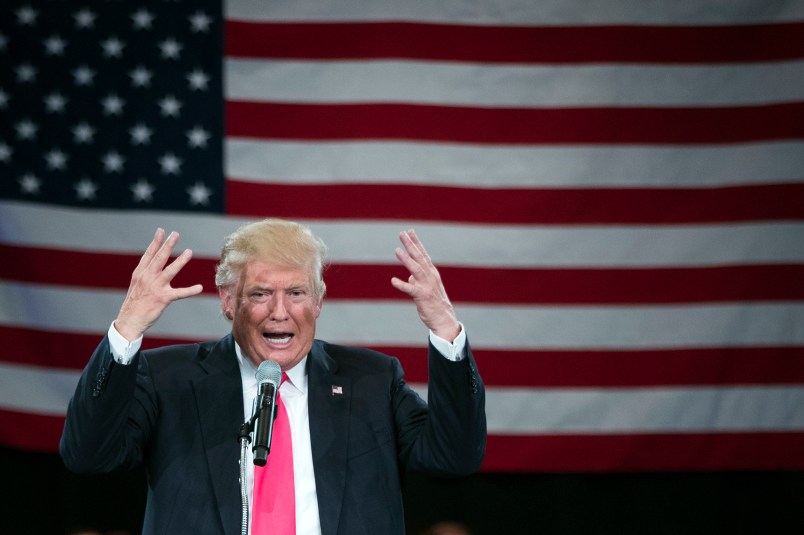As Josh details in his blog, there is a maximal and a minimal case for demanding that Republican nominee Donald Trump disclose his financial interests. The maximal case is arguable, but debatable. The minimal case is not.
The maximal case is that Trump’s views of NATO, Russia and Putin are a product of an implicit or even covert arrangement with Putin, which is reinforced by Trump’s business dealings, that in exchange for Trump accepting, in effect, Russia’s sphere of influence in Eastern Europe, Putin will do what he can to help Trump win the election. I have my doubts about this. Trump’s views about NATO and free-riding go back at least to 1988 when he made a one-day foray into presidential politics. My suspicion is that there is no deal here, that Trump embraces a hyper-realist view of Russia and Eastern Europe and that because Trump holds this view, Putin would like to see him win the election and Clinton lose. Russia’s role in hacking the Democratic National Committee computers can at the least be attributed to hostility toward the Democrats.
But even the slightest suspicion that there is a connection between Trump’s business interests and his stands on Russia and Putin strengthens what is already an ironclad case for demanding that Trump disclose whatever financial interests he has that relate to Russia – and in particular any debts or obligations that he might have to the Russian business or government. It’s about conflict of interest.
Every member of Congress and most state or even local legislators are subject to rules about conflict of interest and have to disclose their holdings so that it can be seen whether these interests have affected his decision-making. According to federal law (18 U.S. Code §208) , officials should not even participate in decisions whether they or any members of their family have a financial interest. And it’s a long held presumption that presidential candidates should eliminate even the appearance of conflict of interest by disclosing their tax returns. In Trump’s case, it would take disclosure of his business records to dispel (or display) any appearance of a serious conflict of interest. Still, at a very minimum, he should be required to disclose his tax returns – and do so now.






